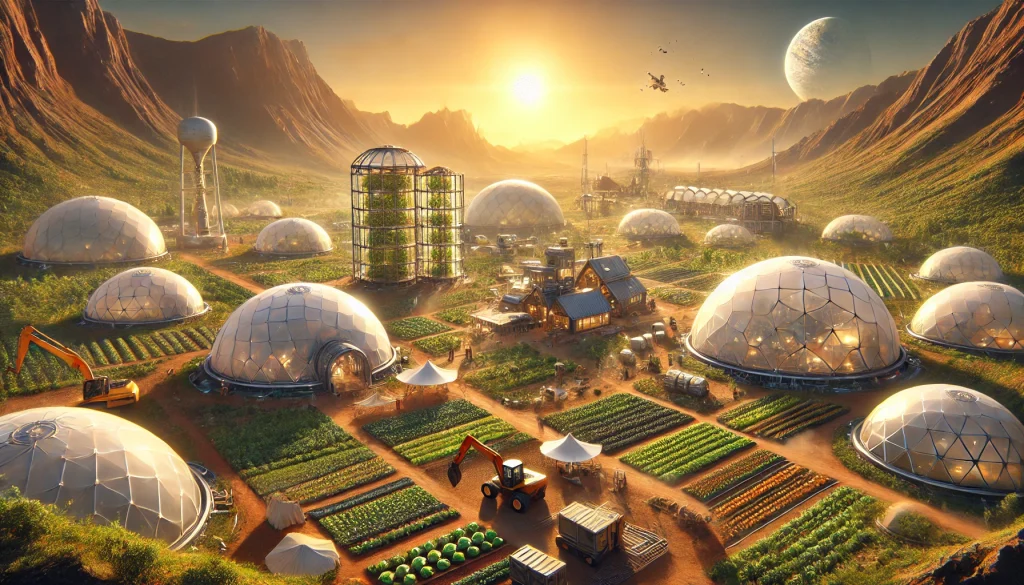British Interplanetary Society – Re-Inventing Space 2024 ‘Beyond the Moon Symposium’

I have had a fantastic day at the British Interplanetary Society’s – Re-Inventing Space 2024 ‘Beyond the Moon Symposium’ where they have had lots of interesting speakers, it has been a honour to be able to present my paper on what I believe to be the hardest and most important challenge, which is achieving self sufficiency.
It was a truly fantastic day, next year I intend to go to the Gala dinner after, but it was great meeting Douglas Robinson from Solid State Dynamics Ltd, a thoroughly interesting gentleman with a brilliant idea for propulsion. I was also fortunate to meet Peter Swan from Starting Space Elevator Development Corporation, now there is an idea for the UK to embrace.
Please find below an extract on my Paper.
Extract of my Paper
Currently, missions rely on carrying all necessary supplies or resupplying from Earth. To truly become a spacefaring species, we must eliminate this reliance on Earth-based resources and develop the capability for space missions, colonies, and habitats to operate independently.
Self-sufficiency will require the ability to produce, recycle, and manage all necessary resources to not only sustain human life but allow it to thrive. This capability is vital for several reasons. First, it enables missions to extend beyond the Moon, to Mars and other exotic places, where resupply from Earth is impractical due to distance and cost. Establishing a long-term space habitat necessitates local production of resources to ensure a stable, continuous, and scalable supply, free from the prohibitive costs of Earth-based resupply.
Furthermore, self-sufficiency enhances resilience against unexpected failures and potential delays from resupply missions. For example, being able to grow food, recycle water, and produce breathable air on-site reduces the mission’s vulnerability to supply chain disruptions. Advances in technology, such as 3D printing for manufacturing tools and spare parts, and closed-loop life support systems, are essential steps towards achieving this goal.
In addition to its critical importance for space exploration, the pursuit of self-sufficiency presents massive commercialisation opportunities. Companies that can develop and provide solutions to these challenges stand to benefit immensely. Innovations in resource management, life support systems, sustainable agriculture, and in-situ resource utilisation (ISRU) what the potential to not only support space missions but also generate significant economic returns. These technologies can revolutionise industries both in space and on Earth, creating a new market for space-based services and products.
To conclude, the challenge of self-sufficiency is paramount for the future of space exploration. By focusing on developing the necessary technologies and systems, we can ensure the sustainability and success of long-duration missions, ultimately paving the way for humanity to become a truly spacefaring species.



